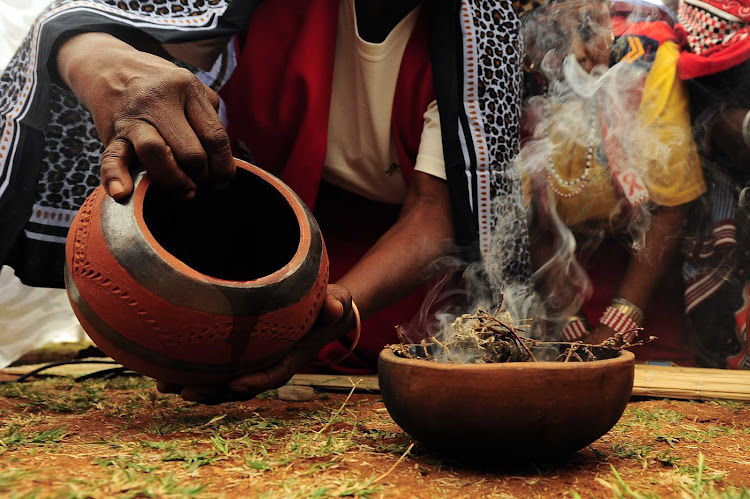
 i_need_contribute
i_need_contribute

Health minister Aaron Motsoaledi recently announced the appointment of a new chairperson and members to the Interim Traditional Health Practitioners Council of South Africa.
Image: Thulani Mbele/File
This week, Gonondo Sheila Fihliwe Khama was announced as the chairperson when health minister Dr Aaron Motsoaledi appointed members of the ITHPCSA for the remainder of the 2023–26 term.
Bruce Mbedzi from the department of health said the minister was replacing the previous chairperson and three other members as vacancies became available.
The appointments were made in terms of the Traditional Health Practitioners Act, which empowers him to fill vacancies and strengthen the representation of key stakeholders within the council.
The new members are expected to contribute to the continued transformation, regulation and professionalisation of the traditional health sector.
According to the department, the ITHPCSA plays a critical role in upholding ethical standards, protecting public health and promoting the recognition and integration of traditional healing within South Africa’s broader healthcare system.
Sarah Motha from Mpumalanga was appointed in the herbalist category and has been serving as a herbalist for more than five years.
Rapholo Joel Chauke from Gauteng was appointed in the diviner category, a position previously occupied by Khama.
Dr Morokolo Sathekge was appointed as a representative from the Health Professions Council of South Africa (HPCSA).
Mbedzi said the appointed members were nominated two years ago.
"In terms of the act, these people should have been traditional health practitioners for about five years in their category," he said.
He added that according to the act, there are four categories of traditional health practitioners, which include the diviner, the herbalist, the traditional birth attendants and the traditional surgeons.
While these appointments are set to play a critical role in the traditional health practitioners' sector, Prof Sithembiso Shabalala said there were problems in the council.
Shabalala is a traditional healer and lecturer at the Mhlabuhlangene School of African Medicine and also served as a member of the former Traditional Health Practitioners Council.
"The council itself is very important to traditional healers and practitioners," he said, adding that the problem was the appointment of people who don’t have any speciality in African healing.
He said that for the council to function effectively, traditional healers should be allowed to appoint the people serving on the council.
"Appoint people who are specialists in healing, because if you just appoint someone who knows nothing, who has only been practising for five years, that is a problem," he said.
He blamed the department of health officials for creating this problem among traditional healers.
Shabalala said he has been in the sector since 1995, when they organised the traditional healers' organisations and amalgamated all of them to help create the Traditional Health Practitioners Act.
At the time, he said he would communicate with traditional healers across the country to support the idea, and he said in KwaZulu-Natal, they managed to amalgamate all traditional healers into a proper, effective structure.
"Like us as the school of African medicine we are specialists in African healing. If the minister can consult us and ask for ideas, we can assist, and we are willing to assist to kickstart of the council," he said.
He added that the council should first identify people who should be registered with it.
"You can’t regulate someone if you don’t know whether they were initiated. If they say every individual must register with the council, that is very dangerous because how can you confirm if that person is a traditional healer?" he said.
He said the first challenge that needed to be resolved was to allow practitioners in the sector to identify and assess traditional healers.